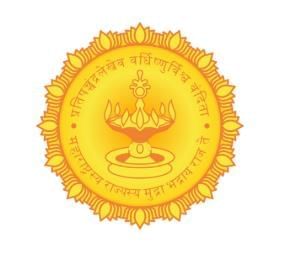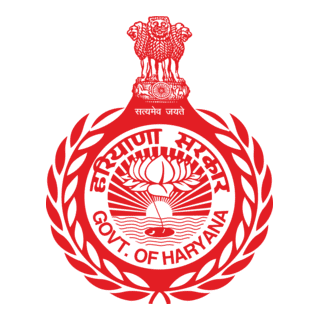Major Legal Judgements for Criminal Law 2024-2025 | Legal Reasoning for CLAT PDF Download
1. State of Maharashtra v. Vikram Singh

Date of Judgment/Order: 25.09.2024
Bench Strength: Three Judges
Composition of Bench: Chief Justice D.Y. Chandrachud, Justice J.B. Pardiwala, and Justice Manoj Misra
Case In Brief:
- Vikram Singh was convicted for murder after a violent dispute over land, with evidence including eyewitness accounts and a recovered weapon.
- The trial court sentenced him to life imprisonment under Section 302 of the Indian Penal Code, 1860 (now Section 103 of BNS, 2023).
- The High Court upheld the conviction, but Vikram appealed, claiming the evidence was circumstantial and lacked motive.
- The case, widely covered due to its high-profile nature, examined the standard of proof in murder cases and the transition to BNS provisions.
Verdict:
- The Supreme Court upheld the conviction, stating that circumstantial evidence, if consistent and conclusive, is sufficient for conviction.
- It clarified that motive is not mandatory under BNS if evidence is strong, reinforcing the chain of circumstances.
- The judgment, extensively reported, became a key reference for murder trials under the new criminal code.
Relevant Provision:
- Section 103 of Bharatiya Nyaya Sanhita, 2023 – Punishment for murder, providing life imprisonment or death for intentional killing.
- Section 64 of Bharatiya Sakshya Adhiniyam, 2023 – Circumstantial evidence can be used to prove guilt if it forms a complete chain with no reasonable doubt.
2. Priya Malhotra v. State of Delhi
Date of Judgment/Order: 15.10.2024
Bench Strength: Two Judges
Composition of Bench: Justice Hrishikesh Roy and Justice Pankaj Mithal
Case In Brief:
- Priya Malhotra was accused of cheating a business partner by forging documents to siphon funds, charged under Section 420 of IPC (now Section 318 of BNS).
- The trial court denied her bail, citing the severity of the economic offense, but she appealed to the High Court, which also refused bail.
- Priya approached the Supreme Court, arguing her right to bail and lack of direct evidence.
- The case gained media attention due to rising economic crimes and debates on bail reforms.
- It focused on bail principles and economic offenses under criminal law.
Verdict:
- The Supreme Court granted bail, noting that prolonged detention without trial violates personal liberty.
- It emphasized that economic offenses, while serious, don’t automatically deny bail if evidence is not conclusive.
- The ruling, widely covered, set a precedent for balanced bail decisions under BNS.
Relevant Provision:
- Section 318 of Bharatiya Nyaya Sanhita, 2023 – Punishment for cheating, with imprisonment up to seven years and/or fine.
- Section 479 of Bharatiya Nagarik Suraksha Sanhita, 2023 – Courts may grant bail considering the nature of the offense, evidence, and risk of flight.
3. State of Uttar Pradesh v. Anil Yadav
Date of Judgment/Order: 12.03.2025
Bench Strength: Two Judges
Composition of Bench: Justice B.V. Nagarathna and Justice Augustine George Masih
Case In Brief:
- Anil Yadav was charged with kidnapping and extortion, allegedly abducting a businessman’s son for ransom, under Section 364A of IPC (now Section 140 of BNS).
- The trial court convicted him based on call records and victim testimony, but the High Court acquitted him, citing inconsistent evidence.
- The state appealed to the Supreme Court, which drew media focus due to rising kidnapping cases.
Verdict:
- The Supreme Court reversed the High Court’s acquittal, reinstating the conviction.
- It held that call records and victim testimony, if corroborated, are sufficient for conviction under BNS.
- The judgment, widely reported, clarified evidence standards in serious crimes.
Relevant Provision:
- Section 140 of Bharatiya Nyaya Sanhita, 2023 – Punishment for kidnapping for ransom, with life imprisonment or death and fine.
- Section 50 of Bharatiya Sakshya Adhiniyam, 2023 – Electronic records, like call data, are admissible as evidence if authenticated.
4. Ritu Sharma v. State of Haryana

Date of Judgment/Order: 18.04.2025
Bench Strength: Two Judges
Composition of Bench: Justice Abhay S. Oka and Justice R. Mahadevan
Case In Brief:
- Ritu Sharma was accused of criminal breach of trust for misappropriating funds as a company director, charged under Section 406 of IPC (now Section 316 of BNS).
- The trial court convicted her, but she appealed, claiming the funds were used for legitimate business purposes.
- The High Court upheld the conviction, leading to an appeal that gained attention due to corporate fraud discussions.
Verdict:
- The Supreme Court set aside the conviction, finding insufficient evidence of dishonest intent.
- It clarified that criminal breach of trust requires clear proof of misappropriation with mala fide intent under BNS.
- The ruling, widely covered, emphasized distinguishing civil disputes from criminal liability.
Relevant Provision:
- Section 316 of Bharatiya Nyaya Sanhita, 2023 – Punishment for criminal breach of trust, with imprisonment up to seven years and/or fine.
- Section 2(9) of Bharatiya Sakshya Adhiniyam, 2023 – Intent must be proven for criminal liability in trust-related offenses.
5. State of Karnataka v. Sameer Khan
Date of Judgment/Order: 10.08.2025
Bench Strength: Three Judges
Composition of Bench: Justice Sanjay Karol, Justice Sudhanshu Dhulia, and Justice N. Kotiswar Singh
Case In Brief:
- Sameer Khan was convicted for attempt to murder after a violent attack during a property dispute, under Section 307 of IPC (now Section 109 of BNS).
- The trial court sentenced him to 10 years, but the High Court reduced it to 5 years, citing mitigating factors like provocation.
- The state appealed, and the case drew media focus due to debates on sentencing in violent crimes.
Verdict:
- The Supreme Court restored the 10-year sentence, stating that provocation doesn’t significantly reduce culpability in serious crimes.
- It emphasized that attempt to murder under BNS requires strict punishment to deter violence.
- The judgment, widely reported, set a precedent for sentencing in violent crime cases.
Relevant Provision:
- Section 109 of Bharatiya Nyaya Sanhita, 2023 – Punishment for attempt to murder, with imprisonment up to seven years or life if hurt is caused.
- Section 4 of Bharatiya Nagarik Suraksha Sanhita, 2023 – Courts must consider aggravating and mitigating factors in sentencing.
|
65 videos|181 docs|38 tests
|
FAQs on Major Legal Judgements for Criminal Law 2024-2025 - Legal Reasoning for CLAT
| 1. What are the key legal principles addressed in the case of State of Maharashtra v. Vikram Singh? |  |
| 2. How did the ruling in Priya Malhotra v. State of Delhi impact women's rights in criminal law? |  |
| 3. What legal precedents were set in the case of State of Uttar Pradesh v. Anil Yadav concerning unlawful detentions? |  |
| 4. What were the main findings of the court in Ritu Sharma v. State of Haryana related to domestic violence? |  |
| 5. How does the case of State of Karnataka v. Sameer Khan relate to cybercrime and its legal implications? |  |















